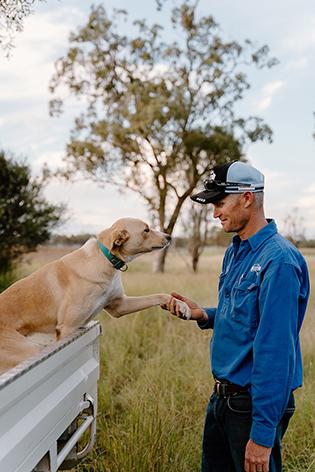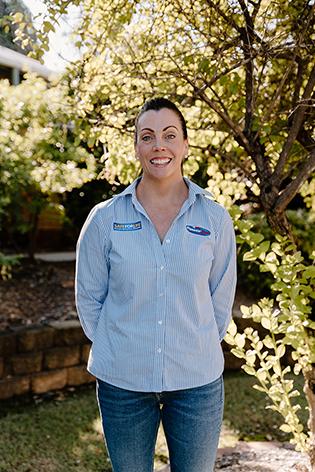Across Queensland's Western Downs and South Burnett, the shift from coal to renewables is reshaping landscapes, livelihoods and community identities. Home to the Tarong and Kogan Creek power stations and a growing mix of gas, solar and wind farms, the region is recognised as a key location in the Queensland Government's Energy Road Map.
Amid both opportunity and uncertainty, the Australian Rural Leadership Foundation and Queensland Conservation Council recognised a need for local people to lead this transition so it can be fair, enduring and community driven.
Funded by Boundless Earth, the pilot Shape Your Energy Future (ShEF) program brought together 21 participants from agriculture, local government, environmental groups, not-for-profits and the energy sector. In early 2024, they gathered for a 5-day residential workshop in the Bunya Mountains, followed by 6 online facilitated-learning sessions. These focused on:
- Leadership impact: Growing participants' confidence and ability to lead across personal, professional and community contexts.
- Community resilience: Increasing local capacity to adapt and respond to energy transition challenges.
- Broadening reach and capacity: Applying learning to expand organisational and regional engagement.
- Collaboration and alliances: Building partnerships and collective action.
- Building relationships: Deepening trust, respect and connection between participants.
- Conflict resolution and social cohesion: Strengthening skills to manage differences and maintain community harmony.
Throughout the program, participants learned to navigate complexity, work across different viewpoints, and turn shared purpose into action. Seven community projects took shape, including a regional benefit-sharing fund, an energy transition roadshow, and a landholder mentoring network. These collaborations have since secured $400,000 in Queensland Government funding through Western Downs Futures to progress community-led energy initiatives such as:
- an energy transition roadshow for the region
- a landholder mentoring program
- end-of-life recycling research into renewable infrastructure
- a formalised landholder tender process.
In the months since, graduates have influenced decision-making across councils, companies and community groups. They have built confidence to convene conversations, advocate for fairness and ensure renewable development benefits local people.
"The most valuable thing I got out of the ShEF program was the connections I made. I was able to grow my network, so I now know who to approach to get what I need. Knowing who to call—that's huge. The sharing of knowledge and connections was huge. I was able to share what I knew with other participants and connect them with other people that could help them in the future too," said Adrian Story, local landholder and program graduate.

Image: Program graduate Adrian Story.
Participants also reported stronger collaboration, empathy and practical skills in facilitation, engagement and problem-solving. A post program evaluation of participants also showed increased trust, new partnerships and growing momentum for community-first approaches to the energy transition.
Powerlink Community Relations Advisor and fellow graduate, Bec Coffey, continues to see the benefit of her involvement in the program and her ability to engage with local stakeholders. "ShEF highlighted the importance of not only considering the whole community—which is absolutely vital—but also making sure that we're providing support to our landholders, who are directly impacted and are on the ground making tough decisions every day," she said.

Image: Program graduate Bec Coffey.
At its heart, ShEF is about people learning to work together through change. It shows that when communities connect, listen and lead with care, the energy transition becomes a story of shared progress rather than division.
Note: Case study current as at 21 October 2025.